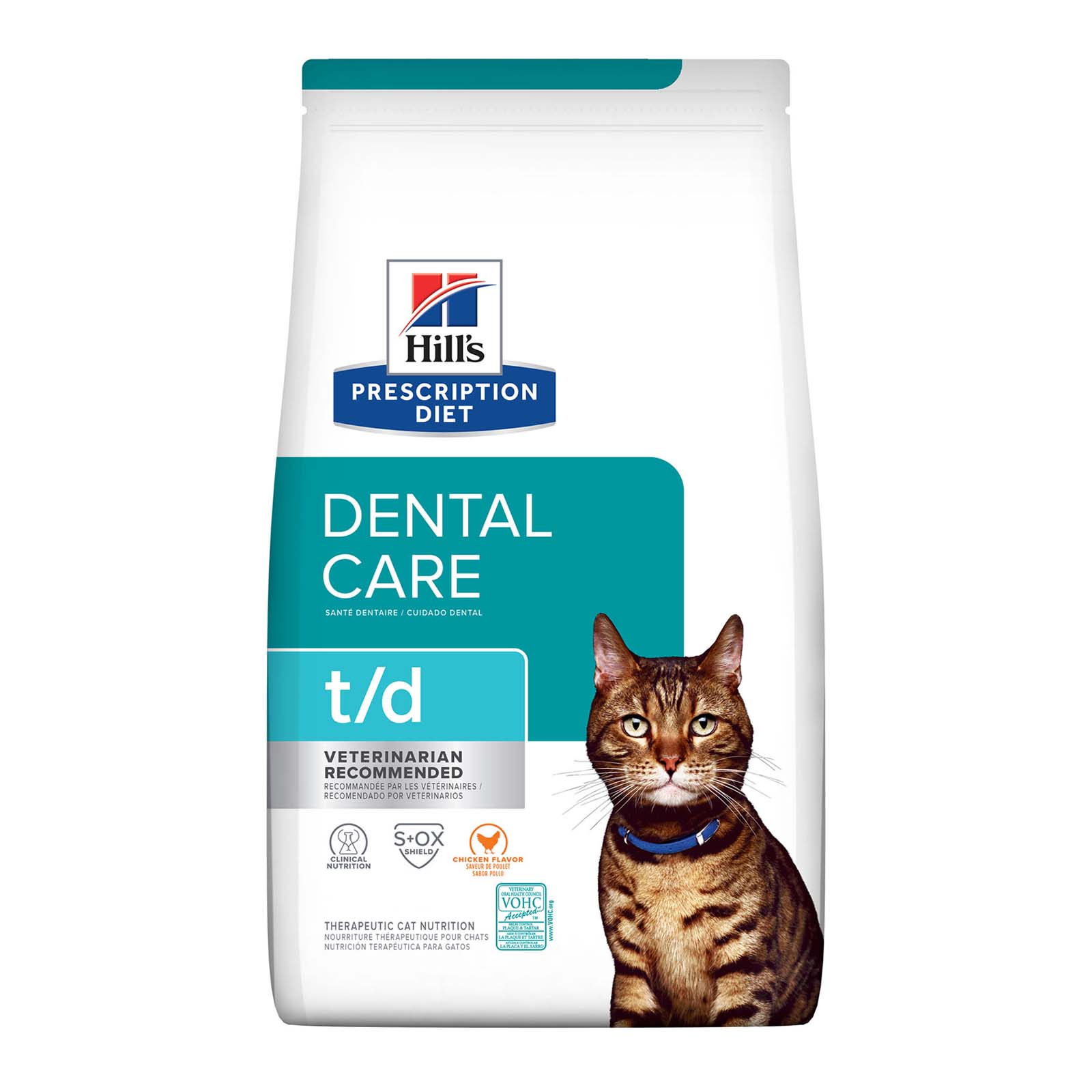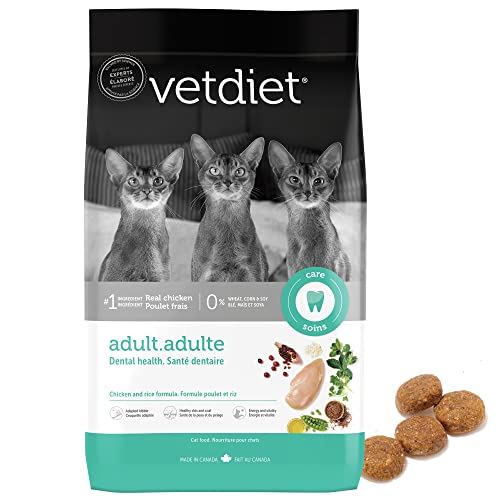
The Purrfect Smile: Vet-Recommended Cat Food for Optimal Dental Health
Introduction
As devoted cat owners, we prioritize our feline companions’ well-being, from their playful antics to their cozy naps. However, one aspect of cat health often overlooked is dental care. Just like humans, cats are susceptible to dental issues that can cause discomfort, pain, and even systemic health problems. Fortunately, proactive dental care, including the right diet, can significantly improve your cat’s oral health. This article delves into the importance of dental health in cats, common dental problems, and vet-recommended cat food options designed to keep your kitty’s smile bright and healthy.
The Importance of Dental Health for Cats
Dental health is intrinsically linked to a cat’s overall well-being. Neglecting oral hygiene can lead to a cascade of health issues:
- Pain and Discomfort: Dental disease can cause significant pain, making it difficult for cats to eat, groom, and even play.
- Halitosis (Bad Breath): Persistent bad breath is often an indicator of underlying dental problems, such as gingivitis or periodontitis.
- Tooth Loss: Advanced dental disease can result in tooth loss, affecting a cat’s ability to chew and digest food properly.
- Systemic Health Problems: Bacteria from infected gums can enter the bloodstream and potentially damage vital organs like the heart, liver, and kidneys.
Common Dental Problems in Cats
Understanding the common dental issues that affect cats is the first step toward effective prevention and treatment:
- Gingivitis: Inflammation of the gums caused by plaque and tartar buildup. Symptoms include red, swollen gums, and bad breath.
- Periodontitis: A more advanced stage of dental disease where the supporting structures of the teeth (ligaments and bone) become damaged. This can lead to tooth loosening and loss.
- Tooth Resorption: A condition where the tooth structure is gradually broken down and reabsorbed by the body. The cause is not fully understood, but it’s a common and painful problem in cats.
- Stomatitis: Inflammation of the oral tissues, including the gums, cheeks, and tongue. Stomatitis can be extremely painful and may be related to immune system issues.
- Tartar Buildup: The accumulation of hardened plaque on the teeth. Tartar provides a rough surface for more bacteria to adhere to, exacerbating dental problems.
The Role of Diet in Cat Dental Health
Diet plays a crucial role in maintaining your cat’s dental health. While dry food alone isn’t a magic bullet, certain types of dry food are specifically formulated to promote oral hygiene.
Vet-Recommended Cat Food for Dental Care
When choosing a dental-friendly cat food, look for products that meet the following criteria:
-
Dental-Specific Formulation:
- Large Kibble Size: Larger kibble encourages chewing, which helps scrape away plaque and tartar from the teeth.
- Unique Kibble Texture: Some dental diets feature a unique texture that promotes abrasion on the tooth surface as the cat chews.
- Enzymatic Action: Certain foods contain enzymes that help break down plaque and tartar.
-
Veterinary Oral Health Council (VOHC) Seal of Acceptance:
- The VOHC is an independent organization that evaluates the effectiveness of dental products for pets. Foods with the VOHC seal have undergone rigorous testing and have been proven to reduce plaque and tartar buildup.
-
High-Quality Ingredients:
- Choose foods made with high-quality protein sources, essential nutrients, and minimal fillers. A balanced diet supports overall health, including dental health.
-
Low Abrasiveness:
- Consider the abrasiveness of the kibble, as overly abrasive food can damage the enamel.
-
Limited Additives:
- Opt for foods with minimal artificial colors, flavors, and preservatives.
Top Vet-Recommended Cat Food Brands for Dental Health
Here are some of the top vet-recommended cat food brands known for their dental health benefits:
- Hill’s Science Diet Oral Care: Hill’s Science Diet offers a range of dental-specific formulas designed to reduce plaque and tartar buildup. Their kibble is specially designed to promote chewing and help clean teeth.
- Royal Canin Veterinary Diet Dental: Royal Canin’s dental diet features a unique kibble shape and texture that encourages chewing action, helping to scrape away plaque and tartar.
- Purina Pro Plan Veterinary Diets DH Dental Health: Purina Pro Plan’s DH Dental Health formula is designed to reduce plaque and tartar buildup while providing complete and balanced nutrition.
- Blue Buffalo Dental Health: Blue Buffalo offers a dental health formula with unique kibble shape and size to promote chewing and reduce plaque buildup.
Important Considerations When Switching to a Dental Diet
- Consult Your Veterinarian: Before making any significant changes to your cat’s diet, consult your veterinarian. They can assess your cat’s specific dental needs and recommend the most appropriate food.
- Gradual Transition: When introducing a new food, gradually mix it with your cat’s current food over a period of 7-10 days to avoid digestive upset.
- Monitor Your Cat’s Response: Observe your cat for any signs of digestive issues or allergic reactions after switching to a new food.
- Fresh Water: Always provide your cat with access to fresh, clean water.
Additional Tips for Maintaining Your Cat’s Dental Health
In addition to a dental-friendly diet, consider these additional tips for maintaining your cat’s dental health:
- Regular Dental Checkups: Schedule regular dental checkups with your veterinarian. They can identify and treat dental problems early on.
- Tooth Brushing: Ideally, brush your cat’s teeth daily using a pet-specific toothbrush and toothpaste. Start slowly and gradually introduce the process to your cat.
- Dental Treats and Chews: Dental treats and chews can help reduce plaque and tartar buildup. Look for products with the VOHC seal of acceptance.
- Professional Dental Cleanings: Your veterinarian may recommend professional dental cleanings under anesthesia to remove stubborn plaque and tartar.
Conclusion
Maintaining your cat’s dental health is an essential part of responsible pet ownership. By choosing a vet-recommended dental diet and incorporating other preventive measures, you can help keep your cat’s smile bright, healthy, and pain-free. Remember to consult your veterinarian for personalized recommendations and guidance on the best approach to your cat’s dental care. After all, a healthy smile leads to a happier, healthier cat!

